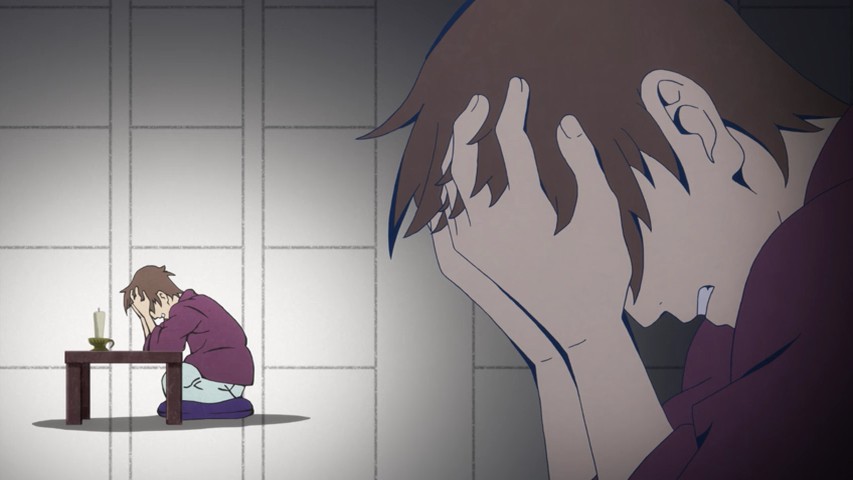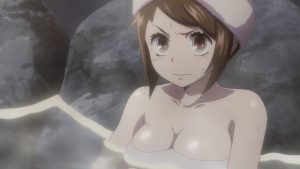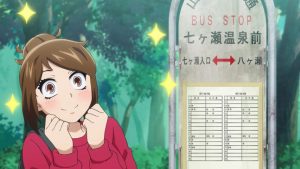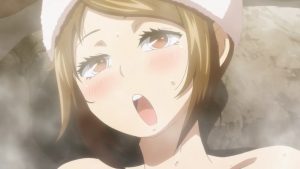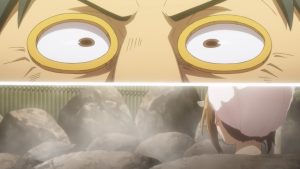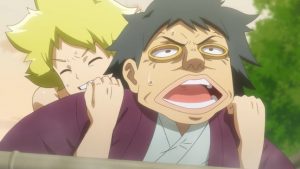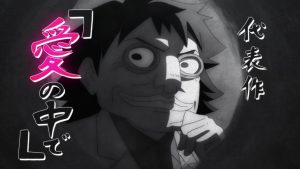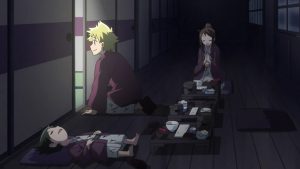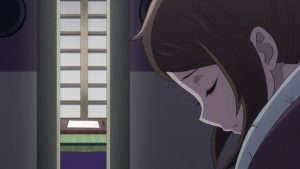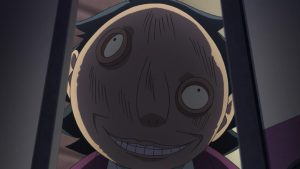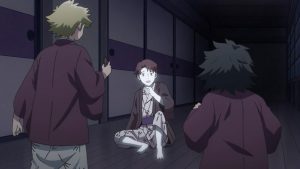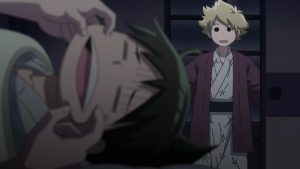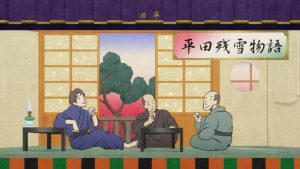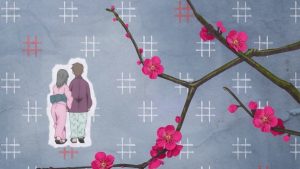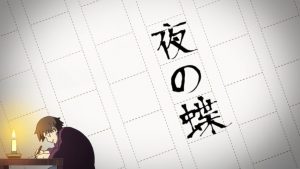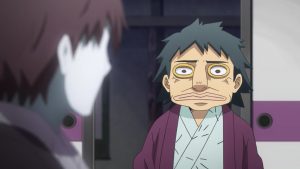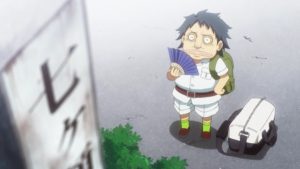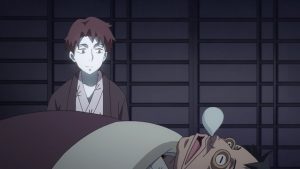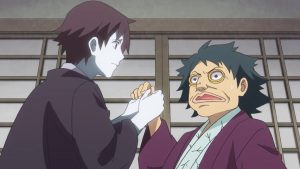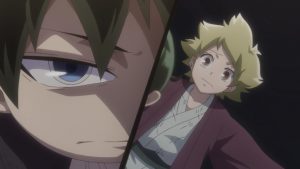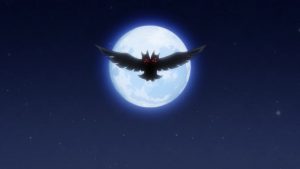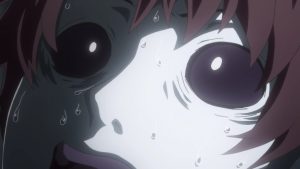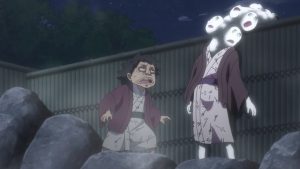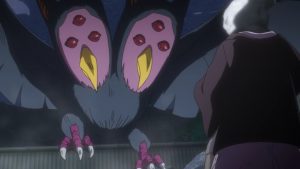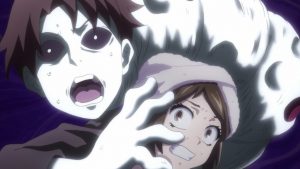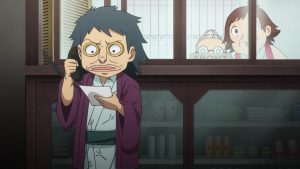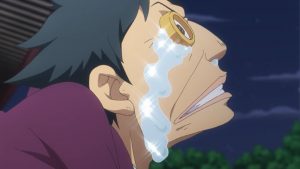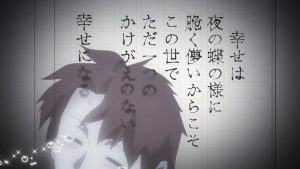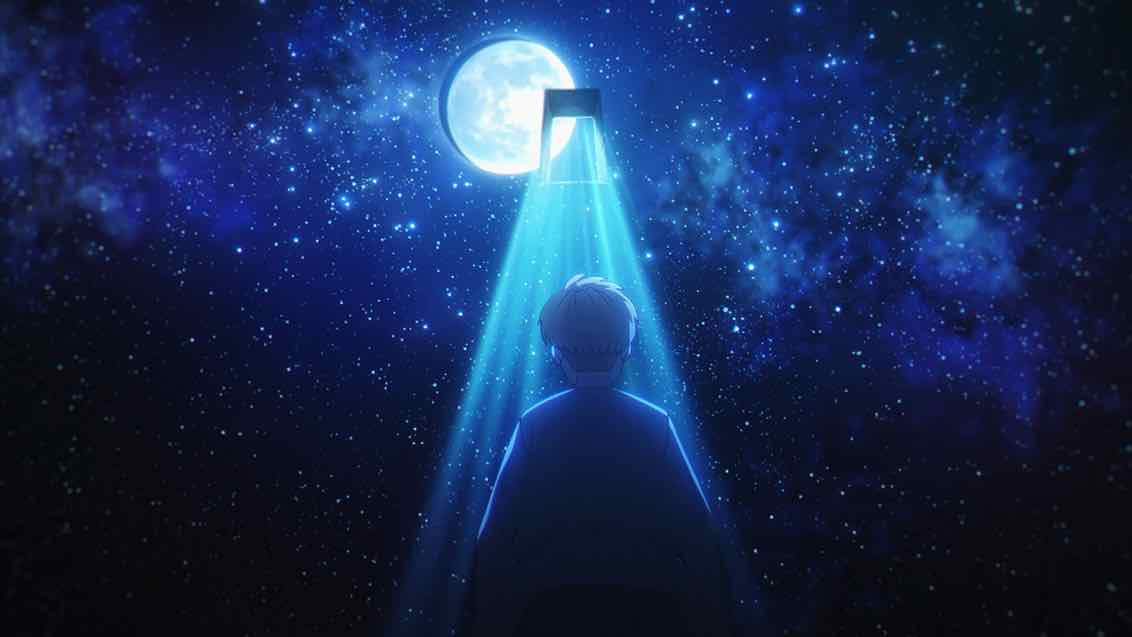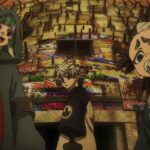Muhyo to Rouji no Mahouritsu Soudan Jimusho is already at the halfway point, and if it’s going to tell anything close to the complete story time is of the essence. But I’m glad it’s taking a step back from the recurring plot to give the episodic stories some airtime. They’re a significant part of the charm of this series, even if individually they’re not essential to the narrative. There does come a point where utilitarianism becomes counter-productive even when adapting long manga into short anime. If you’re not going to communicate the essence of the material, there’s really no point in adapting it in the first place.
Case in point is this week’s self-contained plotline, a full-episode (two chapter) ghost story set at a remote onsen ryokan. Muhyo and Rouji have been called in by novelist Yontani-sensei, who suspects he’s being possessed at night in a manner which gives “ghost writer” a new meaning. Nana has tagged along because- well, fanservice really, though the premise is that she enjoys hot springs and couldn’t turn down a free trip. Which actually isn’t hard to understand.
In effect, it’s a story like this which exemplifies this series for (mostly) better or worse. It’s very traditional, not necessarily ground-breaking, but solidly entertaining and pretty much timeless – this could have been anime from 10, 20 or 30 years ago and felt as contemporary. The idea is that the inn has a bound spirit, an Edo-period novelist who died from tuberculosis while trying to write the love story of himself and the young woman he met at the inn who died of the same disease. Over the course of a century he’s taken the form of several writers who’ve stayed at the inn, but none where the right one to finish telling his story. Until Yontani.
What I like here are the little touches Muhyo and Rouji adds to bring depth and color to a familiar story. Like the transition of the inn from glory to its present derelict state, as its fame as a retreat for sufferers of illness has faded. As well, there’s a nice interplay between the obvious pathos of the dead writer’s situation and the fact that he has, in fact, committed grave spiritual offenses in pursuit of his wish = something which Muhyo has to take it on himself to rise above sentiment and judge as they are. That’s the essence of the premise, pretty much, and if I was to point someone to an episode of this series to try and understand it’s essential nature, this would be a good one to choose.


